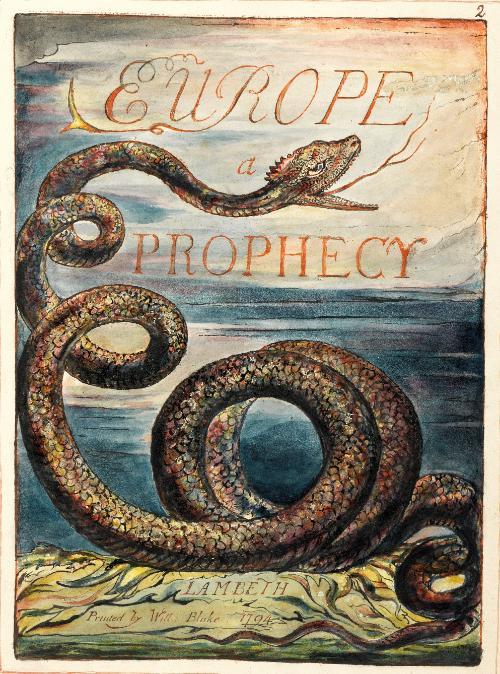Revisiting Early Modern Prophecies (c.1500-c.1815)
Article
26–28 June, 2014, Goldsmiths, University of London, New Academic Building

The Reformation dramatically changed Europe’s religious and political landscapes within a few decades. The Protestant emphasis on translating the Scriptures into the vernacular and the developments of the printing press rapidly gave increased visibility to the most obscure parts of the Bible. Similarly, Spanish and Italian mystics promoted a spiritual regeneration of the Catholic Church during the Counter-Reformation.
Prophecies, whether of biblical, ancient or popular origin, as well as their interpretations gradually began reaching a wider audience, sparking controversies throughout all levels of society across Europe. In recent years, new research has eroded the long standing historiographical consensus of an increasing secularisation accelerated by the Enlightenment, which allegedly cast away beliefs in prophecies and miracles as outmoded. The multiplication of case studies on millenarian movements suggests a radically different picture, yet many questions remain. How did prophecies evolve with the politico-religious conjunctions of their time? Who read them? How seriously were they taken?
Keynote speakers
- Prof. Irena Backus (Geneva)
- Prof. Nigel Smith (Princeton)
- Prof. Christopher Rowland (Oxford)
Other confirmed speakers include
Federico Barbierato (Verona), Mirjam de Baar (Groningen), Michael Driedger (Ontario), Julian Goodare (Edinburgh), Martin Greig (Ryerson), Crawford Gribben (Belfast), Jacqueline Hermann (Rio de Janeiro), Warren Johnston (Algoma), Adelisa Malena (Venice), Nick McDowell (Exeter), Justin Meggitt (Cambridge), Glyn Parry (Roehampton), Matthias Riedl (Budapest), Jo Spaans (Utrecht), Walter Sparn (Erlangen), Xenia von Tippelskirch (Berlin), Leslie Tuttle (Kansas), Vladimir Urbánek (Prague), Steven Vanden Broecke (Ghent), Andrew Weeks (Illinois State)
Registration
Registration fee (includes conference pack, breakfast, lunch, water and refreshments, wifi access):
Concessions*: £75
Full rate: £150
Concessions*: £100
* Concessions are made for graduate students and scholars whose PhD was awarded in the 12 months preceding the 1 June, 2014. Valid upon a presentation of a valid student identification card or an official letter stating the date the PhD was awarded. Documents to be emailed together with the payment receipt to l.laborie (@gold.ac.uk).
† Cancellation policy: 85% refund until 1 June, no refund thereafter.
Please fill out the registration form when registering online and send the form to l.laborie (@gold.ac.uk).
- Final%20Programme
- Abstracts
- Download the registration form (available in Registration%20Form and Registration%20Form formats).
- Poster-2
Book exhibits from these publishers will take place in the Weston Atrium.
Don't miss this series of conferences on prophecies at the Louvre.
Conference organisers
Department of History, Goldsmiths,
University of London, New Cross,
London SE14 6NW